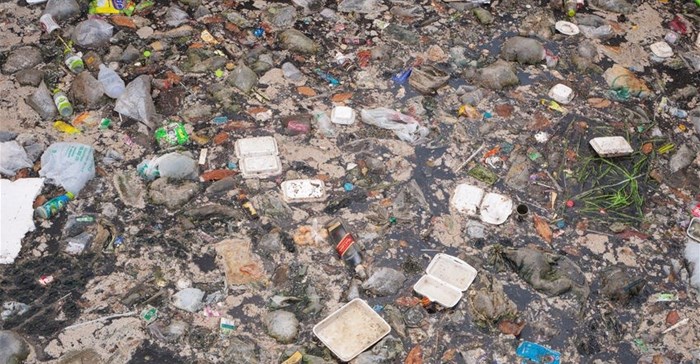





The theme of this year's World Oceans Day was "Healthy Oceans, Healthy Planet", with special emphasis on efforts to stop plastic pollution.
Plastics are the biggest challenge in reducing the accumulation of marine debris, accounting for up to 95% of waste along shorelines, floating on the sea surface and lying on the ocean floor.
Facts and figures on marine pollution from UNESCO:

"SANBI's marine programme has partnered with Plastics|SA over the last three years on quantifying and understanding the drivers of marine litter through support for coastal clean-ups and various research initiatives," said Carmel Mbizvo, chief director of SANBI, at the African Marine Debris Summit.
"Plastics|SA has been a committed and key partner in helping us to understand the issues around marine debris within the South African context. The summit forms part of this growing partnership and it enables us to share and learn from our fellow African coastal countries."
The aim of this year's summit, hosted by Plastics|SA in conjunction with UNEP, the Department of Environmental Affairs and SANBI, was to further the formation of a Southern African Network on Marine Debris with the long-term goal of establishing an African network that ties into the global management of marine debris.
South Africa's Deputy Minister of Arts and Culture, Rejoice Mabudafhasi, was also in attendance, lending her voice to forward a cooperative action plan.
"I understand and appreciate the importance of gatherings such as this where innovative solutions can be identified and promoted so that over time we could see less marine debris entering our scenic and much loved coastal areas," said Mabudafhasi.
The minister recognised and emphasised the need for a global commitment and international cooperation in addressing the issue of marine debris as the oceans are a shared resource. South Africa is a participant in the Global Programme of Action for the Protection of the Marine Environment from Land-based Activities (GPA).
"One of our objectives of the global partnership is to enhance international cooperation and coordination through the promotion and implementation of the Honolulu Strategy - a global framework for the prevention and management of marine debris, as well as the Honolulu Commitment - a multi-stakeholder pledge. With developments such as the global partnership and continued commitment from international agencies, government, NGOs, academia and so forth, I am sure much more momentum will be gained in the quest to tackle the problem of marine debris," said Mabudafhasi.
The minister suggested that the way forward should place a particular focus on waste management - working with the manufacturing industry to increase their recycling efforts and encouraging African citizens to see the potential wealth to be gained from "waste".

The Department of Environmental Affairs customised the theme of UNEP's World Oceans Day to "Healthy Oceans, Healthy Planet: Enabling Sustainable Ocean Economy Development," in order to highlight the government's Operation Phakisa - a programme that promotes economic growth and job creation via the sustainable use of the ocean.
According to SAnews.gov, "Operation Phakisa's oceans economy lab is estimated to have the potential to contribute up to R177bn to the gross domestic product and create just over one million jobs by 2033." It has four priority areas covering marine transport and manufacturing, offshore oil and gas exploration, aquaculture as well as marine protection services and ocean governance.

While the numbers may be daunting - the ocean is a big place to have to clean up - a technological solution may be at hand. Boyan Slat, the 20-year-old founder and CEO of The Ocean Cleanup, just last month announced that the world's first system to passively clean up plastic pollution from the oceans is to be deployed in Q2 2016. The system, spanning 2000m, will become the longest floating structure ever deployed in the ocean, but its feat, if it works, will be far greater.
For more information on The Ocean Cleanup project go to www.theoceancleanup.com, and watch Slat's 2014 TEDx Talk:
The African Marine Debris Summit took place at Kirstenbosch Botanical Gardens in Cape Town from 4-5 June 2015. For more information, go to www.plasticsinfo.co.za.
